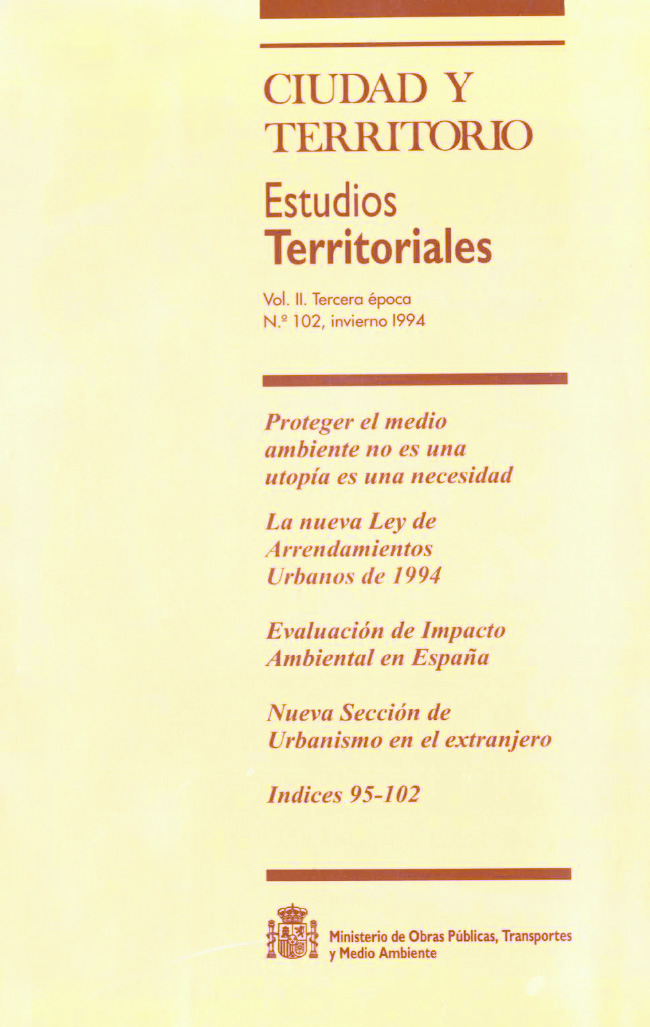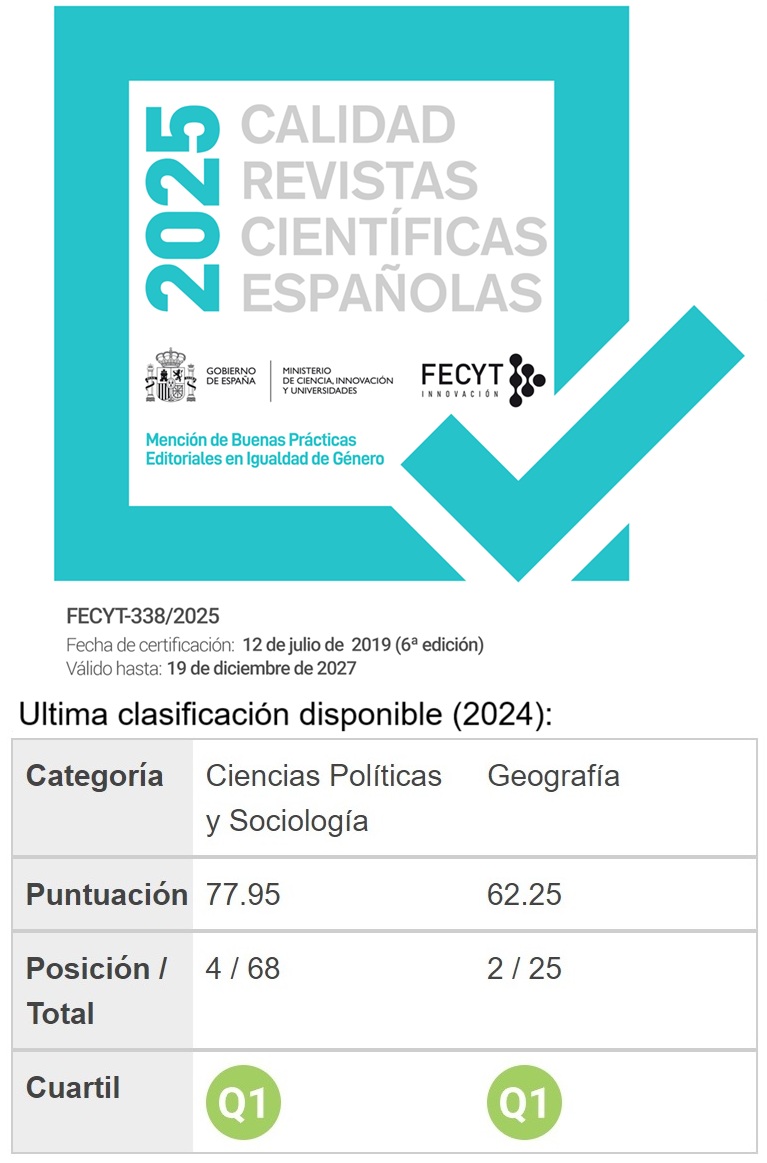Postmodernismo territorial y globalización: regiones pivotales y regiones virtuales
Resumen
El autor plantea una tesis central: la necesidad de introducir un considerable grado de flexibilidad en la generación de estructuras regionales. tanto al interior de los países como en términos supra-nacionales. La flexibilidad es un requisito impuesto por la velocidad del cambio en el entorno regional. por la globalización de las economias y por los requerimientos democráticos en la conformación de regiones. Al fin de alcanzar tal grado de flexibilidad, se propone abandonar los esfuerzos dirigistas y "del centro hacia abajo" en la conformación de las regiones, para dar paso a iniciativas que surjan de la base social y que permitan la configuración regional entre territorios contiguos y también, entre territorios no contiguos, incluso, no necesariamente pertenecientes al mismo pais. La revolución científica y tecnológica en marcha obliga a idear nuevas formas de región, dando por superadas antiguas restricciones vinculadas a la contigüidad de los territorios integrantes y al tamaño de ellas. La complejidad estructural es ahora el factor crucial para identificar regiones, no importando su tamaño. En la propuesta se presenta una nueva tipologia regional en la cual se reconocen regiones pivotales (correspondientes a las menores unidades de la actual división político-administrativa que sean al mismo tiempo de una suficiente complejidad), regiones asociativas (conformadas por la unión política voluntaria entre a lo menos una región pivotal y una o más unidades político-administrativas colindantes), y regiones virtuales (conformadas mediante acuerdos tácticos entre regiones pivotales o entre regiones asociativas sin que medie contigüidad entre ellas). La Constitución de Colombia representa un marco jurídico práctico que permite encuadrar justamente este tipo de proposiciones. La Constitución del Perú también es un ejemplo de flexibilidad regional en tanto que, por el contrario, la Constitución de Chile es totalmente mandatoria.
Descargas
Descargas
Publicado
Cómo citar
Número
Sección
Licencia
Derechos de autor 1994 Sergio Boisier

Esta obra está bajo una licencia internacional Creative Commons Atribución-NoComercial-SinDerivadas 4.0.
Sin perjuicio de lo dispuesto en la legislación vigente sobre Propiedad Intelectual, y conforme a la misma, el/la los/las autor/a/es/as que publiquen en CyTET cede/n a título gratuito, de modo no exclusivo y sin límite temporal al Ministerio de Transportes, Movilidad y Agenda Urbana los derechos para difundir, reproducir, comunicar y distribuir en cualquier formato actual o futuro, en papel o electrónico, la versión original o derivada de su obra bajo licencia de Creative Commons Reconocimiento-NoComercial-SinObraDerivada 4.0 Internacional (CC BY-NC-ND 4.0), así como para incluir o ceder a terceros la inclusión de su contenido en índices, repositorios y bases de datos nacionales e internacionales, con referencia y reconocimiento en todo caso de la autoría del mismo.
Además, al realizar el envío, el/la los/las autor/a/es/as declara/n que se trata de un trabajo original en el que se reconocen las fuentes que han sido utilizadas en su estudio, comprometiéndose a respetar la evidencia científica y a no modificar los datos originales para verificar o refutar una hipótesis de partida; que el contenido esencial del mismo no ha sido publicado previamente ni se publicará en ninguna otra obra o revista mientras esté en proceso de evaluación en la revista CyTET; y que no se ha remitido simultáneamente a otra publicación.
Los autores deben firmar un Formulario de Cesión de Derechos, que les será enviado desde la Secretaría de CyTET una vez se acepte su artículo para ser publicado.
Con el objetivo de favorecer la difusión del conocimiento, CyTET se adhiere al movimiento de revistas de Open Access (OA) y entrega la totalidad de sus contenidos a diversos índices, repositorios y bases de datos nacionales e internacionales bajo este protocolo; por tanto, la remisión de un trabajo para ser publicado en la revista presupone la aceptación explícita por parte del autor/a de este método de distribución.
Se anima a las/os autoras/es a reproducir y alojar sus trabajos publicados en CyTET en repositorios institucionales, páginas web, etc. con la intención de contribuir a la mejora de la transferencia del conocimiento y de la citación de dichos trabajos.








 Enlace a CyTET en Linkedin
Enlace a CyTET en Linkedin